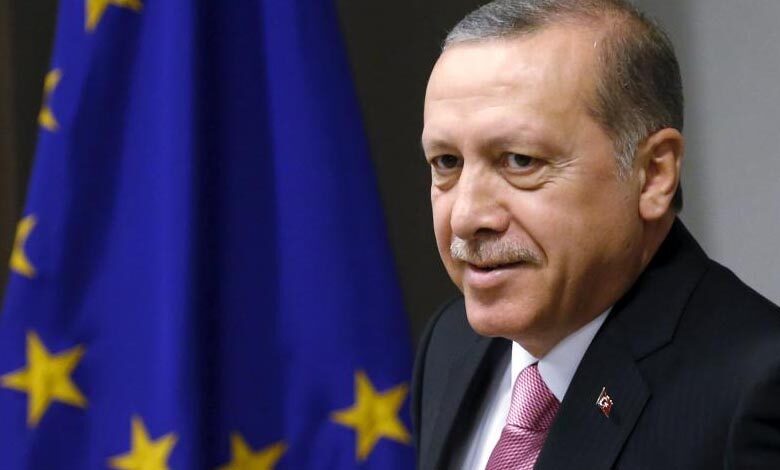Erdogan told European Union that progress required improving relations between Turkey and EU

The Turkish presidency declared that Turkish President Recep Tayyip Erdogan informed European Council President Charles Michel on Monday about the necessary progress on improving relations between Ankara and the bloc, in the presence of renewed tensions between Turkey and Greece over the eastern Mediterranean.
The presidency announced in a statement that Erdogan informed Michel in a phone call that Turkey expected concrete steps from the EU about organizing a regional conference with eastern Mediterranean states, and that Greece was continuing steps to escalate tensions in the eastern Mediterranean despite Turkey’s well-intentioned approach.
The phone call appeared after a Turkish vessel sailed to carry out a seismic investigation in the eastern Mediterranean, which pushed Greece to publish a violent new demand for EU sanctions on Ankara about conflict over offshore exploration rights.
The European Union’s executive declared last week that the government of Turkey was undermining its economy, eroding democracy and destroying independent courts, leaving Ankara’s bid to join the EU further away than ever.
The European Commission blamed excessively centralized presidential power about the deterioration of conditions in freedom of speech, prisons and the central bank, saying that the government was also exposing Turkey to rapid changes in investors’ sentiment.
The Commission also declared in its annual report on the country that the EU’s serious concerns on continued negative developments in the rule of law, fundamental rights and the judiciary have not been credibly addressed by Turkey. It reported that Turkey’s (EU) accession negotiations have effectively come to a standstill.
Otherwise, Turkey which is a NATO ally, has been negotiating its EU membership since 2005 after economic and political reforms that made it an important emerging market economy and trade partner.
Despite that talks were never easy because of disputed Turkish alleges over Cyprus; they rapidly unraveled after a failed coup in Turkey in July 2016 and the suppression of the President Tayyip Erdogan’s on perceived opponents.
Furthermore, The Commission declared that in Turkey, the serious backsliding observed since the 2016 coup attempt continued. However, there was no immediate comment from Turkey, while Ankara has alleged in the past that EU criticism is unfair and disproportionate.
In fact, Turkey has faced many years of severe Commission reports, and the EU executive once again strengthened its criticism, mentioning monetary policy, public administration and widespread corruption as disappointments of the Turkish government.
The EU, the biggest foreign investor of Turkey, depend on the country to house some 4 million Syrians fleeing civil war more than permitted them to move to Europe; Brussels also repeated its threat to impose economic sanctions on Ankara about an energy conflict in the Eastern Mediterranean.












